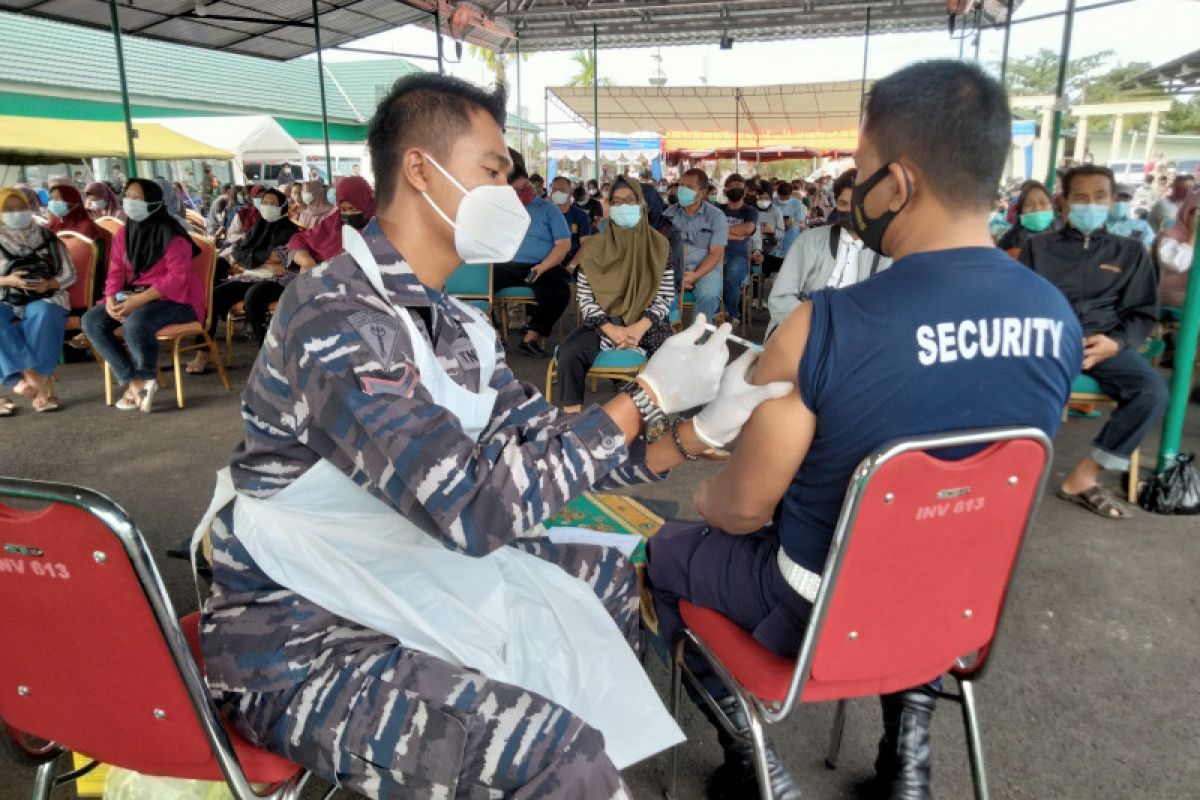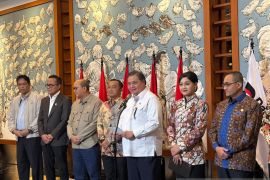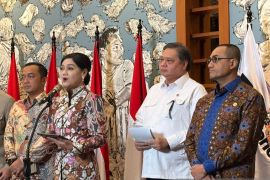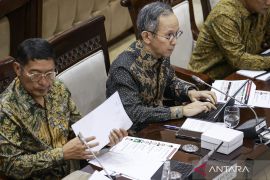After knowing these factors, we must take immediate intervention measures to reduce the COVID-19 death ratesBogor, W Java (ANTARA) - President Joko Widodo on Sunday announced the second extension of level 4 public activity restrictions, made effective from July 26 to August 2, 2021, amid a positive trend in Indonesia's handling of COVID-19 pandemic.
Apart from extending the level 4 restrictions, the government is making some adjustments in rules related to public activities and mobility, he informed.
In his official statement, broadcast on the Presidential Secretariat's official YouTube channel on Sunday, Widodo said cautious measures would be applied when implementing the adjustments.
The extension of the level 4 restrictions on the islands of Java and Bali has been done with due consideration accorded to the aspects of health, economy, and social dynamics of communities, he added.
Due to this consideration, the government has made some adjustments in rules related to the operation of people-based business activities under the strict implementation of health protocols, Widodo said.
Related news: President Jokowi extends level 4 restrictions with adjustments
Those allowed to serve consumers include vendors at traditional markets selling basic necessities, laundry service providers, barbershops, street vendors, and traditional retailers, he added.
Vendors at traditional markets selling non-staple foods have been, for instance, allowed to run their business from morning till 3 p.m. local time by following a maximum 50 percent capacity, he noted.
Meanwhile, traditional retailers, laundry service providers, and those running barbershops, among others, have been allowed to operate their businesses from morning till 9 p.m. local time, he said.
Those running small food stalls and street vendors have been allowed to run their business from morning till 8 p.m. local time, but under strict compliance with health protocols, he added.
Detailed regulatory and technical guidance for local businesses would be made by regional administrations, Widodo informed.
Related news: Extended restrictions needed as health priority concern: Indef
Indonesia has been struggling to deal with a drastic surge in COVID-19 cases in the midst of the growing threat posed by the more contagious Delta variant of the coronavirus.
To address this alarming situation, the government has been enforcing emergency and level 4 restrictions on the islands of Java and Bali since July 3, 2021.
On July 24, Coordinating Economic Minister Airlangga Hartarto also held a virtual meeting with the heads of regional governments to discuss the enforcement of the level 4 restrictions outside Java and Bali.
At the meeting, Hartarto disclosed the government's assessment that the level 4 public activity restrictions need to be enforced in 45 districts and cities in 21 provinces to curb the spread of COVID-19.
Prior to the government's announcement on the extension of the level 4 restrictions, Coordinating Maritime Affairs and Investment Minister, Luhut B. Pandjaitan, had held a coordination meeting with several governors and district heads to discuss the necessary measures that needed to be taken to reduce soaring deaths in the prior week.
At the meeting, Pandjaitan had disclosed that overwhelmed hospitals, arrival of COVID-19 patients at hospitals with low oxygen saturation, and absence of carers for those conducting self-isolation at home had contributed to the surge in deaths.
The factors responsible for the hike in COVID-19 deaths were revealed by recent field studies, said Pandjaitan, who is also the coordinator for the enforcement of emergency and level 4 restrictions.
Referring to the research findings at the meeting, the minister said that the people succumbing to the coronavirus disease are generally those with comorbidities, or those who are unvaccinated.
"After knowing these factors, we must take immediate intervention measures to reduce the COVID-19 death rates," he added.
The immediate measures include increasing the ICU bed capacity at hospitals and ensuring the availability of medical oxygen stocks in areas with high COVID-19 death rates, Pandjaitan said.
Related news: Java, Bali remain at level 4 COVID-19 alert: Health Ministry
He further highlighted the importance of having centralized self-isolation facilities and carers for high-risk groups of COVID-19 patients conducting self-isolation at home for reducing the death rate.
Regarding the distribution of free medicine packages for self-isolating COVID-19 patients, he requested health offices to keep maintaining good coordination with the Indonesian Military (TNI).
"The key to handling this pandemic is having discipline and synergistic collaboration," he remarked.
To this end, COVID-19 testing and contact-tracing need to be intensified in a consistent and collaborative manner to break the chain of coronavirus infection, he added.
Since they were imposed on July 3, the emergency and level 4 restrictions have had a positive impact on the Jakarta administration's efforts to bring the city's hospitals and daily COVID-19 cases back on track.
Jakarta Governor Anies Baswedan claimed on Monday that the critical condition in the capital city is showing signs of easing, with daily active cases showing a declining trend.
The number of hospitalized and self-isolating COVID-19 patients in Jakarta was recorded at 64 thousand on Sunday, a significant decrease from 113 thousand patients recorded on July 16, 2021, he said.
The positive trend in Jakarta's fight against COVID-19 in the midst of the growing threat of the more transmissible Delta variant can also be observed from the city's current positivity rate, he added.
The positivity rate has declined from about 45 percent to 25 percent while the daily counts of bodies of COVID-19 victims buried in cemeteries around the capital city have also decreased from 350 to below 200, he noted.
The present condition at many hospitals has also improved compared to a month ago thanks to the availability of wards and beds at their ICU facilities, he said.
Noting the development, he urged local residents to maintain the positive momentum by consistently complying with the government's health protocols.
Related news: Demand for COVID-19 drugs up 12-fold since June: Sadikin
Related news: Indonesia needs 2,500 tons of oxygen per day: minister
Editor: Fardah Assegaf
Copyright © ANTARA 2021












